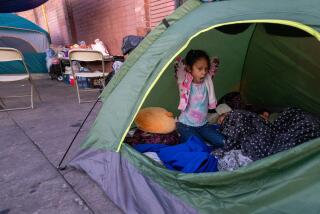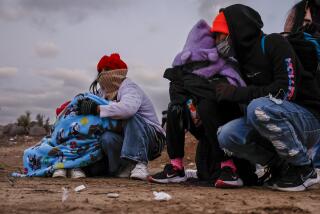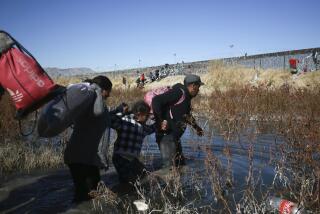Migrants cut deep by destruction, confusion
For thousands of migrant and seasonal farm workers who didn’t have much even before Hurricane Charley hit, the devastation has presented special hardships, advocates said after touring Florida migrant camps and residential areas this week.
In some cases, farm workers are not getting adequate services because of language barriers, lack of transportation and poor understanding of what is available to them, the advocates said.
“They don’t have insurance. They don’t know how things work here. They don’t know that they can go to FEMA and ask for help, and they have trouble with the language,” said Barbara Mainster, executive director of the Redlands Christian Migrant Association based in Immokalee.
“Our people didn’t lose pool cages and lanais. They lost their trailers and rented houses.”
Often, farm workers can’t get to shelters from their rural homes, or they are unaware that the shelters are available, Mainster said.
“There is only one shelter in DeSoto [County] and one in Hardee [County], so people are staying in their homes, which are in horrible, horrible shape,” she said.
Esperanza Gamboa, director of the farm-worker education program at Manatee Technical Institute in Bradenton, is seeking “guardian angels” who can provide powdered milk, ice, nonperishable food and portable showers.
The destruction and confusion have led to widespread rumors among farm workers that relief programs are not available to those without documentation, Gamboa said. FEMA Director Mike Brown said Wednesday in Orlando that nonresidents without family connections to U.S. citizens are not eligible for Federal Emergency Management Agency funds.
“If you are here totally illegally on your own, we cannot do anything directly, but we can put you in touch with the Red Cross or Salvation Army or someone else to help you,” Brown said.
He stressed that FEMA workers have specific orders to help nonresidents as much as possible -- and not report them to the INS.
“We won’t call immigration. We will put you in touch with agencies that can help,” he said.
Wachula, Bowling Green, Zolfo Springs, Nocatee, Pine Island, Wahneta and Haines City are among the areas with “significant damage” where farm workers live, advocates said.
Several farm-worker advocacy groups are working with the Red Cross and Salvation Army to set up a migrant-worker assistance headquarters with Spanish translators in Arcadia by the end of the week, said Carlos Saavadra, program director for the state’s farm-worker jobs program in Tampa.
In addition, there is concern that tens of thousands more migrants will pour into the hard-hit areas in coming months only to find that there are few jobs and far less housing because of hurricane damage to citrus farms.
“We will have to look at ways to discourage them from coming down, or they will find there is no work for them,” said Arturo Lopez, with the Florida Farmworker Association in Homestead.
Wes Smith can be reached at 407-420-5672 or dwsmith@orlandosentinel.com.
More to Read
Start your day right
Sign up for Essential California for news, features and recommendations from the L.A. Times and beyond in your inbox six days a week.
You may occasionally receive promotional content from the Los Angeles Times.






